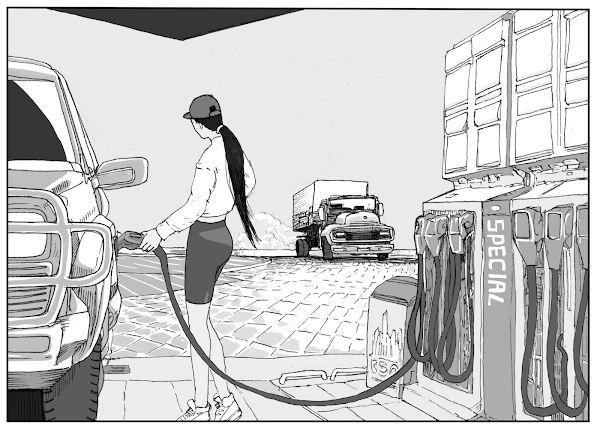Reading The Book Thief, and I'm exactly halfway through it.
It's a great book. But maybe I had been expecting too much of it? To be honest, I'd very well just drop it here and start reading something else. There are a thousand other books that I'd rather be reading.
Things that annoy me regarding The Book Thief.
Style.
It is true there is a lot of substance in the story. The depth of history. The death's of characters. The holocaust. The Nazi antics. Surely, Zusak (the writer) didn't have to resort to cheesy writing style to make sure readers comply in finishing the book! Some would say that the style is very much a part of the story, and The Book Thief couldn't have been told any other way. Though I agree with that, it still doesn't take away the fact that the style of writing is draining and dreary and gimmicky! Extremely annoying!
Stylised writing should be written very prudently. With care. They are like Instagram filters. Don't overdo it, or they become fake and draining to the imagination. The Book Thief style of writing is fine - even enjoyable - for a couple of chapters. But by the time you get halfway through it, I am rolling my eyes with every passing description or a chapter ending statement most of which sound forced and something 'creative writing' students would attempt on their writing exercises.
Death's Narration.
Death is a character in this book, in fact, the main narrator of the story. That's fine. In fact, that's a crazy idea. That in itself is a winner when you're talking of an attention seeking device.
But Zusak makes Death sound like a young adult stream-of-consciousness-poet who writes songs describing snows and feelings and barren winter trees – well, pretty much what I imagine Zusak himself to be.
Is Death trying too hard? Is Zusak trying too hard?
Characters.
Also Zusak seems to be forcing the reader to love and sympathise with the characters a bit too much. Whereas you find that they are not very convincing. In my mind's eye they seem to be like characters from a low budget WWII film with synthesizer-generated orchestra music tugging at your reluctant heart to please cry, please cry and empathise with these poor victims of human terror and Nazi brutalism... poor poor humans, look at them cry calling out Papa! and Mama! and huddling in the dark, as the musical strings rise and the crescendo peaks...
Forced.
Stop telling the story like you're narrating it to a bunch of ADD teenagers. This is a powerful story. Tell it for what it is!
Now, let me read the rest of the book and see what I feel by the end of it.
It's a great book. But maybe I had been expecting too much of it? To be honest, I'd very well just drop it here and start reading something else. There are a thousand other books that I'd rather be reading.
Things that annoy me regarding The Book Thief.
Style.
It is true there is a lot of substance in the story. The depth of history. The death's of characters. The holocaust. The Nazi antics. Surely, Zusak (the writer) didn't have to resort to cheesy writing style to make sure readers comply in finishing the book! Some would say that the style is very much a part of the story, and The Book Thief couldn't have been told any other way. Though I agree with that, it still doesn't take away the fact that the style of writing is draining and dreary and gimmicky! Extremely annoying!
Stylised writing should be written very prudently. With care. They are like Instagram filters. Don't overdo it, or they become fake and draining to the imagination. The Book Thief style of writing is fine - even enjoyable - for a couple of chapters. But by the time you get halfway through it, I am rolling my eyes with every passing description or a chapter ending statement most of which sound forced and something 'creative writing' students would attempt on their writing exercises.
Death's Narration.
Death is a character in this book, in fact, the main narrator of the story. That's fine. In fact, that's a crazy idea. That in itself is a winner when you're talking of an attention seeking device.
But Zusak makes Death sound like a young adult stream-of-consciousness-poet who writes songs describing snows and feelings and barren winter trees – well, pretty much what I imagine Zusak himself to be.
Is Death trying too hard? Is Zusak trying too hard?
Characters.
Also Zusak seems to be forcing the reader to love and sympathise with the characters a bit too much. Whereas you find that they are not very convincing. In my mind's eye they seem to be like characters from a low budget WWII film with synthesizer-generated orchestra music tugging at your reluctant heart to please cry, please cry and empathise with these poor victims of human terror and Nazi brutalism... poor poor humans, look at them cry calling out Papa! and Mama! and huddling in the dark, as the musical strings rise and the crescendo peaks...
Forced.
Stop telling the story like you're narrating it to a bunch of ADD teenagers. This is a powerful story. Tell it for what it is!
Now, let me read the rest of the book and see what I feel by the end of it.
